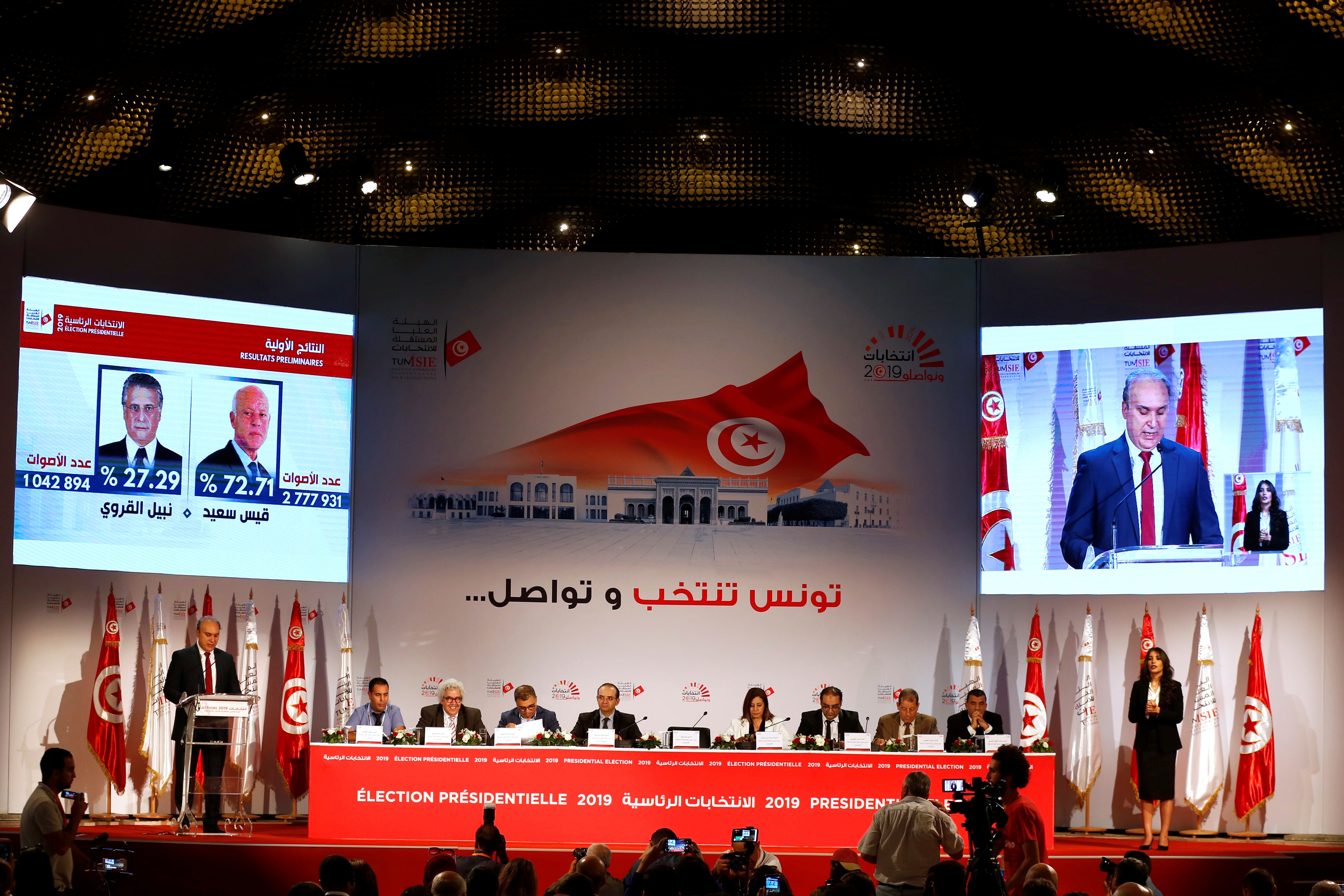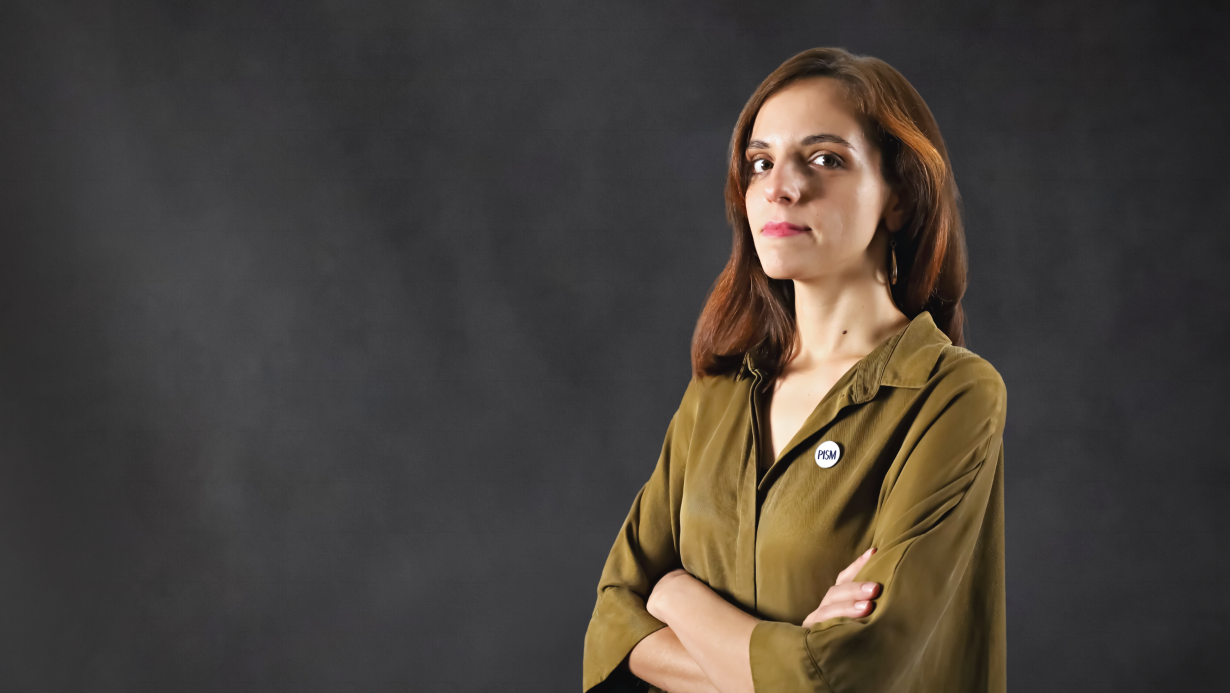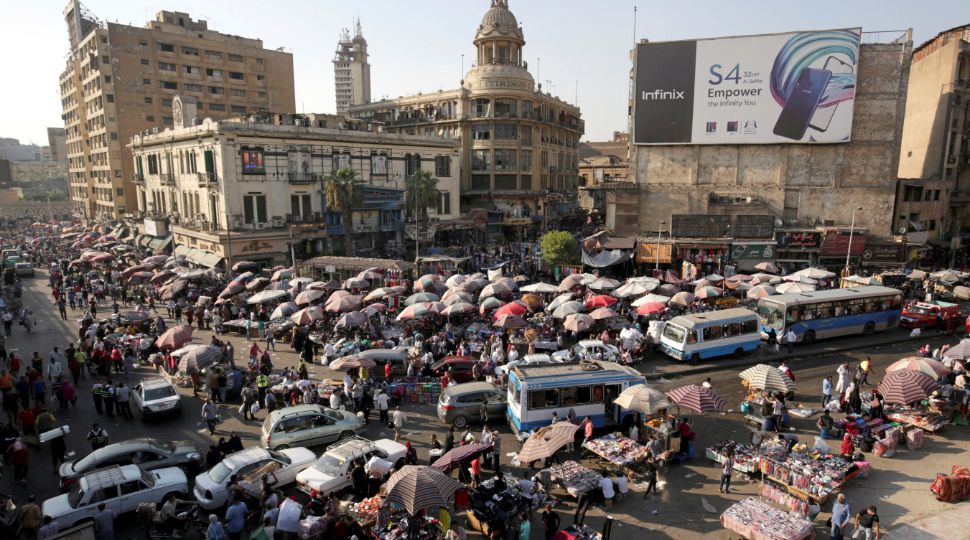Tunisia after the Presidential and Parliamentary Elections

Who were the candidates and why did Said win?
Said, who is also a law professor, and Nabil Karui, a media mogularrested three weeks before the first vote on charges of financial crimes, entered the second round of the presidential elections. Since Said nor Karui was in power at the time—with the former prime minister and candidate of Al-Nahda, one of the parties of the ruling coalition, failing to go through to the second round—their win in the first round was a sign of Tunisians’ disappointment with the government’s failure to address the country’seconomic problems.Said, then supported by Al-Nahda, won with 72.71% of the vote. In his campaign, he stressed the importance of the rule of law. While he announced he would introduce elements of direct democracy he also criticized the decriminalisation of homosexual acts and the equality of inheritance rights for men and women, trying to combine democratic values with social conservatism.
What were the results of the parliamentary elections?
The moderate Islamist Al-Nahda came in first, winning 52 out of 217 seats in parliament, 17 fewer than in the previous elections. This drop is the effect, among others, of its electorate’s dissatisfaction with the party’s decision to separate its political and religious activities. The second-best result (38 seats) belongs to Heart of Tunisia, founded in 2019 by Karui. The social-democratic party Democratic Current and the Islamic party Dignity also received significant support (22 and 21 seats, respectively). Secular groups as well noted an increase in their results. As a consequence of a split in the party, Nida Tunis, currently the largest in the ruling coalition, won only three seats—83 fewer than in 2014.The outcome of the elections indicatesthe possibility of greater polarisation of the Tunisian political scene, primarily in terms of Islam’s role in politics.
What are the prospects for forming a government?
According to the constitution, the president will entrustthe right to form a government to the party that won the most support in the elections. However, the political fragmentation revealed in these electionsmay hamper the winner, Al-Nahda, from forming a government. Among the obstacles are the criticism from other parties that Al-Nahda brought about the economic problems and the differences in the parties’ approaches to the secularisation of the state. A coalition like the one in 2014between the two strongest parties is impossible this time give the resentment between Al-Nahda and Heart of Tunisia. In turn, the political credibility of Heart of Tunisia has been negatively affected by the criminal charges against Karui. If the government is not appointed within one month, after consulting the parties, the president will nominate a candidate, who will try to form one. If this fails, new elections will be held.
Will the election results influence the democratisation of the state?
The semi-presidential system in Tunisia splits the executive power between the president and the prime minister. Unlike the previous president, Said has not declared a desire to strengthen the position of the head of the state. He was a member of the committee that co-created the Tunisian constitution of 2014 and announced the introductionof decentralisation to enhance democracy at the local level. His choice can be considered to have hada positive impact on the democratisation of the state. Nevertheless, conflicts inside parliament may become an obstacle to the transformation. So far, Tunisia’s democratic course has been furthered, among others, by the compromise between the centre-left Nida Tunis and Al-Nahda. The current divisions may lead to changing the political priority from transformation to fighting for the interests of individual groups.
What can be expected from the new president’s foreign policy?
Said announced he would seek to restrain external influence on Tunisian domestic policy, for example, by restricting foreign NGOs. However, in light of Algeria’s political instability and the civil war in Libya, it is doubtful that he will seek to end financial and military support from abroad. The president will continue cooperation with the EU, which supports the Tunisian democratisation process and provides assistance (about €915 millionin 2014-2020) in managing state borders to limit irregular migration. Tunisia also is like to continuedefence cooperation with the U.S., which has contributed $100 million to fightingterrorism in 2015 and trainsthe Tunisian army. Said also emphasizes the need to strengthen connections with Tunisia’s neighbours andopposes the normalisation of relations with Israel.




